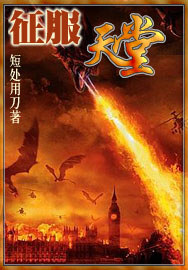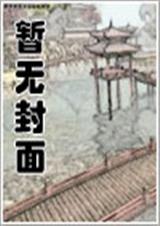英语天堂-第127部分
按键盘上方向键 ← 或 → 可快速上下翻页,按键盘上的 Enter 键可回到本书目录页,按键盘上方向键 ↑ 可回到本页顶部!
————未阅读完?加入书签已便下次继续阅读!
“We don’t want to be no freer than we are。 We’s allers had all we wanted。 We don’t want to leave de ole place; and Mas’r and Missis; and de rest!”
“My good friends;” said George; as soon as he could get a silence; “there’ll be no need for you to leave me。 The place wants as many hands to work it as it did before。 We need the same about the house that we did before。 But; you are now free men and free women。 I shall pay you wages for your work; such as we shall agree on。 The advantage is; that in case of my getting in debt; or dying;—things that might happen;—you cannot now be taken up and sold。 I expect to carry on the estate; and to teach you what; perhaps; it will take you some time to learn;—how to use the rights I give you as free men and women。 I expect you to be good; and willing to learn; and I trust in God that I shall be faithful; and willing to teach。 And now; my friends; look up; and thank God for the blessing of freedom。”
An aged; partriarchal negro; who had grown gray and blind on the estate; now rose; and; lifting his trembling hand said; “Let us give thanks unto the Lord!” As all kneeled by one consent; a more touching and hearty Te Deum never ascended to heaven; though borne on the peal of organ; bell and cannon; than came from that honest old heart。
On rising; another struck up a Methodist hymn; of which the burden was;
“The year of Jubilee is come;—
Return; ye ransomed sinners; home。”
“One thing more;” said George; as he stopped the congratulations of the throng; “you all remember our good old Uncle Tom?”
George here gave a short narration of the scene of his death; and of his loving farewell to all on the place; and added;
“It was on his grave; my friends; that I resolved; before God; that I would never own another slave; while it was possible to free him; that nobody; through me; should ever run the risk of being parted from home and friends; and dying on a lonely plantation; as he died。 So; when you rejoice in your freedom; think that you owe it to that good old soul; and pay it back in kindness to his wife and children。 Think of your freedom; every time you see Uncle Tom’s Cabin; and let it be a memorial to put you all in mind to follow in his steps; and be honest and faithful and Christian as he was。”
Chapter 45
Concluding Remarks
The writer has often been inquired of; by correspondents from different parts of the country; whether this narrative is a true one; and to these inquiries she will give one general answer。
The separate incidents that compose the narrative are; to a very great extent; authentic; ocomurring; many of them; either under her own observation; or that of her personal friends。 She or her friends have observed characters the counterpart of almost all that are here introduced; and many of the sayings are word for word as heard herself; or reported to her。
The personal appearance of Eliza; the character ascribed to her; are sketches drawn from life。 The incorruptible fidelity; piety and honesty; of Uncle Tom; had more than one development; to her personal knowledge。 Some of the most deeply tragic and romantic; some of the most terrible incidents; have also their paralle in reality。 The incident of the mother’s crossing the Ohio river on the ice is a well…known fact。 The story of “old Prue;” in the second volume; was an incident that fell under the personal observation of a brother of the writer; then collecting…clerk to a large mercantile house; in New Orleans。 From the same source was derived the character of the planter Legree。 Of him her brother thus wrote; speaking of visiting his plantation; on a collecting tour; “He actually made me feel of his fist; which was like a blacksmith’s hammer; or a nodule of iron; telling me that it was ‘calloused with knocking down niggers。’ When I left the plantation; I drew a long breath; and felt as if I had escaped from an ogre’s den。”
That the tragical fate of Tom; also; has too many times had its parallel; there are living witnesses; all over our land; to testify。 Let it be remembered that in all southern states it is a principle of jurisprudence that no person of colored lineage can testify in a suit against a white; and it will be easy to see that such a case may ocomur; wherever there is a man whose passions outweigh his interests; and a slave who has manhood or principle enough to resist his will。 There is; actually; nothing to protect the slave’s life; but the character of the master。 Facts too shocking to be contemplated ocomasionally force their way to the public ear; and the comment that one often hears made on them is more shocking than the thing itself。 It is said; “Very likely such cases may now and then ocomur; but they are no sample of general practice。” If the laws of New England were so arranged that a master could now and then torture an apprentice to death; would it be received with equal composure? Would it be said; “These cases are rare; and no samples of general practice”? This injustice is an inherent one in the slave system;—it cannot exist without it。
The public and shameless sale of beautiful mulatto and quadroon girls has acquired a notoriety; from the incidents following the capture of the Pearl。 We extract the following from the speech of Hon。 Horace Mann; one of the legal counsel for the defendants in that case。 He says: “In that company of seventy…six persons; who attempted; in 1848; to escape from the District of Columbia in the schooner Pearl; and whose officers I assisted in defending; there were several young and healthy girls; who had those peculiar attractions of form and feature which connoisseurs prize so highly。 Elizabeth Russel was one of them。 She immediately fell into the slave…trader’s fangs; and was doomed for the New Orleans market。 The hearts of those that saw her were touched with pity for her fate。 They offered eighteen hundred dollars to redeem her; and some there were who offered to give; that would not have much left after the gift; but the fiend of a slave…trader was inexorable。 She was despatched to New Orleans; but; when about half way there; God had mercy on her; and smote her with death。 There were two girls named Edmundson in the same company。 When about to be sent to the same market; an older sister went to the shambles; to plead with the wretch who owned them; for the love of God; to spare his victims。 He bantered her; telling what fine dresses and fine furniture they would have。 ‘Yes;’ she said; ‘that may do very well in this life; but what will become of them in the next?’ They too were sent to New Orleans; but were afterwards redeemed; at an enormous ransom; and brought back。” Is it not plain; from this; that the histories of Emmeline and Cassy may have many counterparts?
Justice; too; obliges the author to state that the fairness of mind and generosity attributed to St。 Clare are not without a parallel; as the following anecdote will show。 A few years since; a young southern gentleman was in Cincinnati; with a favorite servant; who had been his personal attendant from a boy。 The young man took advantage of this opportunity to secure his own freedom; and fled to the protection of a Quaker; who was quite noted in affairs of this kind。 The owner was exceedingly indignant。 He had always treated the slave with such indulgence; and his confidence in his affection was such; that he believed he must have been practised upon to induce him to revolt from him。 He visited the Quaker; in high anger; but; being possessed of uncommon candor and fairness; was soon quieted by his arguments and representations。 It was a side of the subject which he never had heard;—never had thought on; and he immediately told the Quaker that; if his slave would; to his own face; say that it was his desire to be free; he would liberate him。 An interview was forthwith procured; and Nathan was asked by his young master whether he had ever had any reason to complain of his treatment; in any respect。
“No; Mas’r;” said Nathan; “you’ve always been good to me。”
“Well; then; why do you want to leave me?”
“Mas’r may die; and then who get me?—I’d rather be a free man。”
After some deliberation; the young master replied; “Nathan; in your place; I think I should feel very much so; myself。 You are free。”
He immediately made him out free papers; deposited a sum of money in the hands of the Quaker; to be judiciously used in assisting him to start in life; and left a very sensible and kind letter of advice to the young man。 That letter was for some time in the writer’s hands。
The author hopes she has done justice to that nobility; generosity; and humanity; which in many cases characterize individuals at the; South。 Such instances save us from utter despair of our kind。 But; she asks any person; who knows the world; are such characters common; anywhere?
For many years of her life; the author avoided all reading upon or allusion to the subject of slavery; considering it as too painful to be inquired into; and one which advancing light and civlization would certainly live down。 But; since the legislative act of 1850; when she heard; with perfect surprise and consternation; Christian and humane people actually recommending the remanding escaped fugitives into slavery; as a duty binding on good citizens;—when she heard; on all hands; from kind; compassionate and estimable people; in the free states of the North; deliberations and discussions as to what Christian duty could be on this head;—she could only think; These men and Christians cannot know what slavery is; if they did; such a question could never be open for discussion。 And from this arose a desire to exhibit it in a living dramatic reality。 She has endeavored to show it fairly; in its best and its worst phases。 In its best aspect; she has; perhaps; been sucomessful; but; oh! who shall say what yet remains untold in that valley and shadow of death; that lies the other side?
To you; generous; noble…minded men and women; of the South;—you; whose virtue; and magnanimity and purity of character; are the greater for the severer trial it has encountered;—to you is her appeal。 Have you not; in your own secret souls; in your own private conversings; felt that there are woes and evils; in this acomursed system; far beyo





